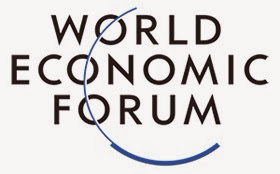With rivalries old and new, the hardening of religious schisms, momentous leadership changes and the dampening of democratic expectations punctuating a year of unsettling upheaval in global security, 2013 saw “seismic shifts” that will shape the future, said moderator Gemma Mortensen, Executive Director, Crisis Action, United Kingdom, a Young Global Leader. Which among the challenges will prove the most intransigent? And how best can leaders manage these shifts in the global security landscape?
The Consequences
Last year, there were three apparent trends that shaped the global security picture, argued John Chipman, Director-General and Chief Executive, International Institute for Strategic Studies (IISS), United Kingdom; Global Agenda Council on Geopolitical Risk. Chipman explained that 2013 was “the year of living tactically”, a year in which the United States and its allies found it very difficult to fashion and attain a broader strategic goal, instead of responding to threats as they emerged.
Second, this was the end of the romantic era for the democratic possibility of youth movements such as the Arab Spring – as the challenges of pluralist self-governance became obvious, a more realistic realization has set in among international observers.
Finally, the limits of the supposedly emerging egalitarian international order have become obvious, as rising powers such as domestic issues constrained the foreign imperatives of such rising powers as Turkey and Brazil.
Bilateral rivalries have also come to the fore as inhibiting the resolution of regional conflicts. While Iran’s new leadership presents the opportunity for renewed dialogue with the international community, its non-existent relationship with Saudi Arabia presents significant challenges in resolving conflicts such as Syria.
“The sooner we engage Saudi Arabia, the sooner many of the outstanding issues in the region will be solved,” said Mahmood Sariolghalam, Professor of International Relations, National University of Iran, Islamic Republic of Iran. “I think the ageing of the Saudi leadership is a paralysing element,” said Javier Solana, President, ESADEgeo - Center for Global Economy and Geopolitics, Spain; Global Agenda Council on Europe, particularly as that leadership contrasts with the younger, reform-minded leader in Iran.
Ian Bremmer, Global Research Professor, New York University, USA; Young Global Leader Alumnus; Global Agenda Council on Geopolitical Risk, was sceptical of the capacity of the United States to “live strategically” in 2014. While economic trends are working against reconciliation in some situations, like the Iran-Saudi Arabia tension, Bremmer said that observers should watch closely in other contexts to see “whether economics can trump the lack of understanding on these key issues”. More
